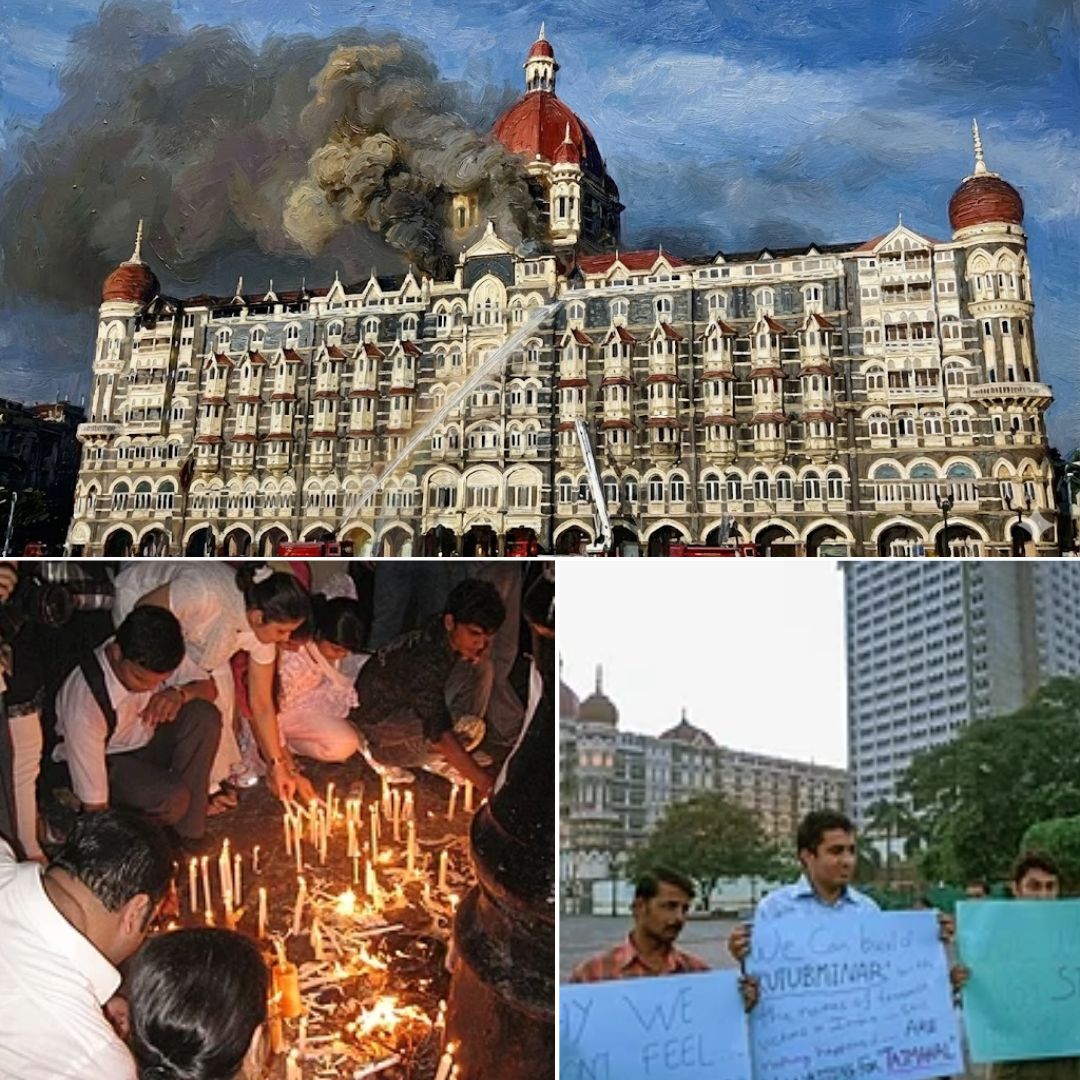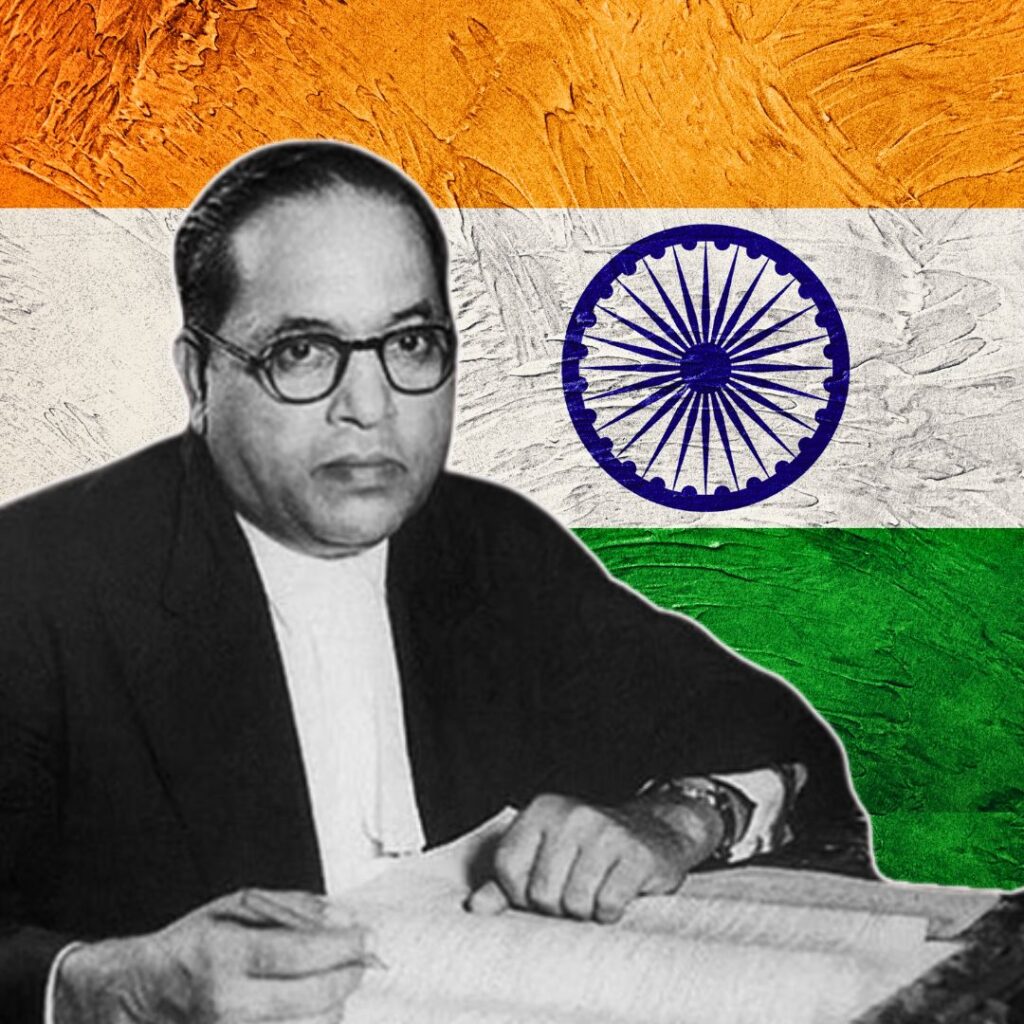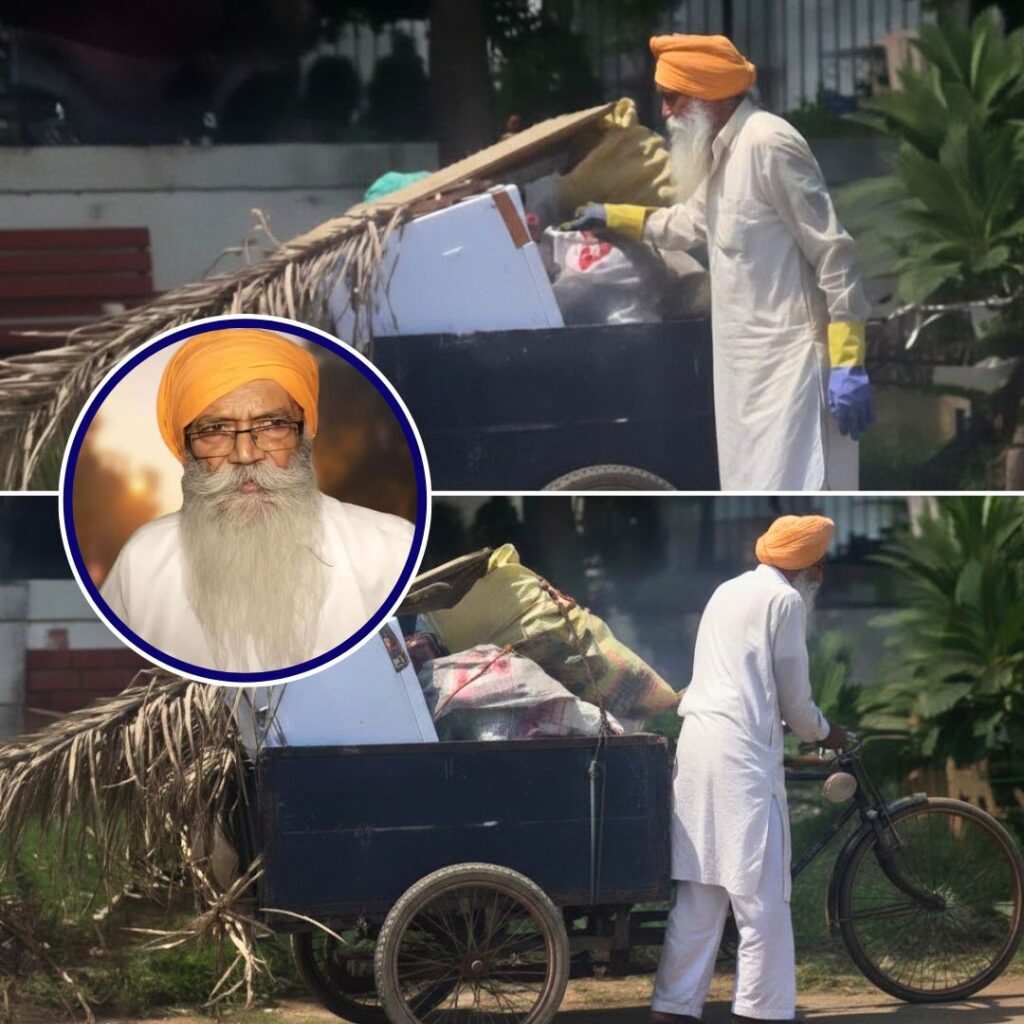The 17th anniversary of the 26/11 Mumbai terror attacks is being solemnly observed today, marking one of the darkest days in India’s recent history.
On the night of November 26, 2008, ten terrorists from the Pakistan-based Lashkar-e-Taiba group infiltrated Mumbai via the sea, spreading across South Mumbai to launch a series of coordinated attacks on key locations. These included the Taj Mahal Palace Hotel, Oberoi Trident Hotel, Chhatrapati Shivaji Terminus railway station, Leopold Cafe, and the Nariman House Jewish centre, among others.
The siege lasted nearly 60 hours, taking the lives of 166 people, including 20 security personnel and 26 foreign nationals, and injuring more than 300 others. The terrorists used automatic weapons and grenades, unleashing mayhem in some of the city’s busiest and most symbolic places, shattering a sense of security in the financial capital of India.
Honouring Sacrifice and Courage
As part of the 17th anniversary commemorations, the National Security Guard (NSG) is organising a memorial and pledge ceremony at the Gateway of India under the theme “Neverever,” symbolising the resolve that such terror attacks must never happen again. The event features a dedicated memorial zone with photographs and names of the fallen heroes, floral tributes, and candles.
Citizens, including students from various schools and colleges, are participating in pledge-taking ceremonies to reinforce a collective commitment to peace, vigilance, and national security. The heroic efforts of police and security forces are being remembered with profound respect, officers like Assistant Sub-Inspector Tukaram Omble, who sacrificed his life capturing the lone surviving terrorist, and Major Sandeep Unnikrishnan, who led the NSG operation to reclaim the Taj Hotel but was fatally wounded during combat.
The bravery of countless other personnel and civilians who confronted the terrorists remains a defining legacy of the attacks.
Context and Continued Security Measures
The 26/11 attacks exposed critical vulnerabilities in India’s security and intelligence frameworks, prompting significant reforms in urban and coastal security. These reforms include improved emergency response protocols and strengthened counter-terrorism coordination across agencies.
The National Investigation Agency (NIA) continues to pursue justice, recently seeking information from international partners related to the case. Maharashtra Police, learning from the attacks, are reportedly drafting drone policy guidelines to bolster citywide surveillance and response capabilities. The enduring trauma of the attacks has also reinforced India’s zero-tolerance stance on terrorism.
Officials including President Droupadi Murmu, Home Minister Amit Shah, and Defence Minister Rajnath Singh have paid tributes to the victims and reiterated the government’s commitment to combating terror in all its forms while honouring the sacrifices of the security forces.

Emerging Challenges
While physical terror attacks like 26/11 remain a grave threat, India faces evolving challenges from radicalisation, especially among vulnerable youth. Extremist groups increasingly employ social media and encrypted online platforms to spread propaganda and recruit followers, leading to a stealthy form of terrorism that is harder to detect and thwart.
Regions such as Kashmir and parts of the Northeast remain vulnerable to local radicalisation due to political, social, and economic grievances. The government recognises that counter-radicalisation requires community engagement, educational initiatives, and robust monitoring of online spaces in addition to traditional security measures. This multi-faceted approach is crucial to preventing the rise of new terror threats in an increasingly connected world.
The Logical Indian’s Perspective
The Logical Indian pays homage to the victims, survivors, and the extraordinary courage of the security personnel who stood tall against terror during those harrowing days. We assert that remembering such tragedies is vital not only to honour those lost but also to strengthen our collective commitment to peace, empathy, and coexistence.
While acknowledging the scars left by such violence, it is important to foster dialogue and kindness as antidotes to hatred and division. Building a society rooted in understanding and communal harmony remains the strongest defence against extremism.
On this day, we pay our deepest tribute to the heroes and victims of the horrific 26/11/2008 Mumbai Terror Attacks
— DD News (@DDNewslive) November 26, 2025
We solemnly honour the bravery, courage, and supreme sacrifice of the police personnel, security forces, and civilians who stood strong against terror.
Their… pic.twitter.com/0QTIKzflyU












